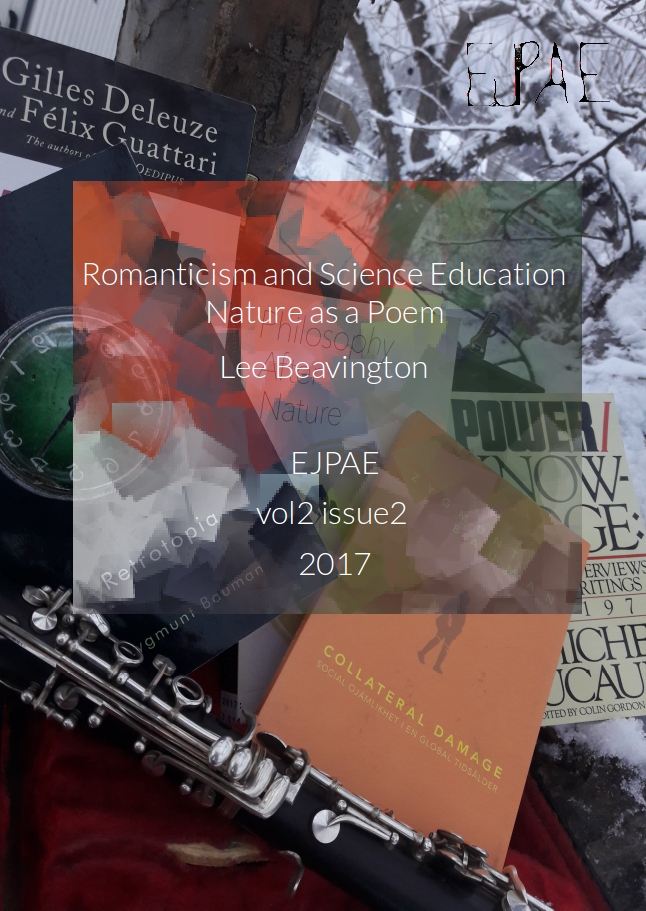Romanticism and Science Education
Nature as a Poem
Keywords:
Romanticism, poetic inquiry, science education, arts-based learning, philosophy of educationAbstract
This philosophical poetic inquiry argues for relational approaches and creative expression in university science education. Poetic inquiry as a methodology can cultivate connection to the other-than-human world that promotes contemplative practice and a reciprocal relationship with life phenomena under study. Throughout this philosophical inquiry I incorporate my own poems and photography, both as a Romanticism-inspired praxis, and to elucidate the vital importance of an ethical-holistic pedagogy in the current era of human-powered climate change, dramatic species extinction, and habitat destruction. Goethean science, where students understand nature inwardly, offers an alternative to Newtonian science by incorporating the intentionality of phenomenological learning and the development of ecological literacy. If we approach the scientific method with wonder and ethical-ecological holism, we might fully acknowledge our moral responsibility toward the biosphere and all earthly beings.

Published
Issue
Section
License
EJPAE provides immediate open access to all its published content. Users do not need to register or pay to read content.
https://creativecommons.org/licenses/by/4.0/
Authors of content published in European Journal of Philosophy in Arts Education (EJPAE) retain the copyright to their works. Content is free to be used by anyone as long as you "[...] give appropriate credit, provide a link to the license, and indicate if changes were made. You may do so in any reasonable manner, but not in any way that suggests the licensor endorses you or your use." and "No additional restrictions — You may not apply legal terms or technological measures that legally restrict others from doing anything the license permits." (from the Creative Commons licence agreement)
EJPAE does not charge any author or publication fees.
Authors are encouraged to deposit the final published version of their article for self-archiving (author's personal website) and/or archiving in an institutional repository immediately upon publication.




